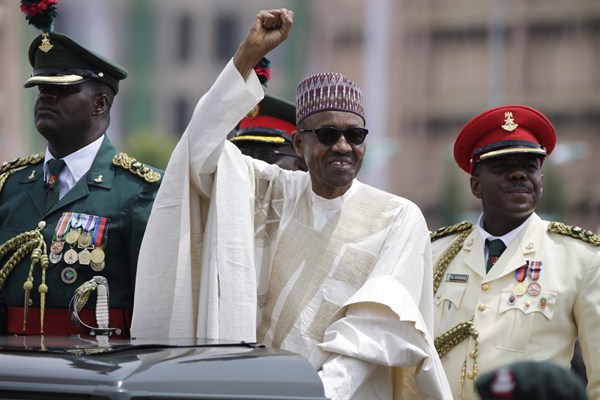On Tuesday, Nigerian President Muhammadu Buhari fired all of Nigeria’s military chiefs in preparation for a fresh multinational offensive against the Islamic extremist group Boko Haram. Despite an international coalition having driven insurgents out of numerous towns and villages in northeastern Nigeria, Boko Haram has ramped up attacks and suicide bombings recently, killing over 250 people this month.
Buhari was elected in March, upsetting incumbent Goodluck Jonathan in a historic victory. “For the first time in Nigeria’s history as an independent nation, an incumbent leader was ousted not in a coup, but at the ballot box,” Sarah Chayes wrote in a feature for World Politics Review in April.
Buhari, who led Nigeria’s military government from 1984-1985, defeated Jonathan by attacking his failure to properly address corruption, poverty and the threat of terrorism. “Buhari’s career is controversial,” Alex Thurston explained in April, shortly after Buhari’s election. “Some Nigerians recall his rule as a rare moment when the state actually fought corruption, while others dismiss his ‘War Against Indiscipline’ as a farce. But his experience is varied and long and, most of all, extends beyond just security affairs.”

